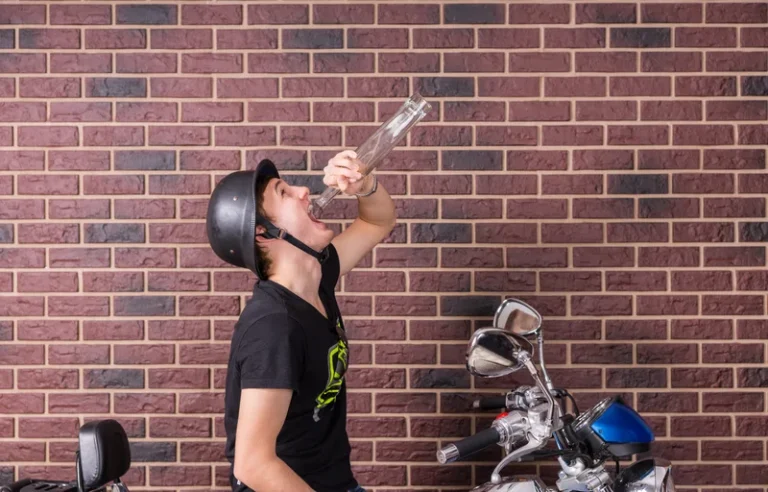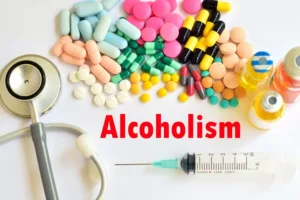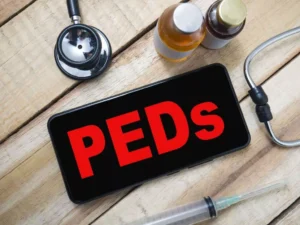What Does Alcohol Do to Your Body?

This same treatment also inhibited the in vitro production of IL-6 and IL-12 by peritoneal macrophages harvested 2 hours following injection of LPS (Pruett, Fan et al. 2005). This phenomenon was not observed in a TLR4 mutant mouse, indicating that the acute phase response is mediated by TLR4 (Pruett and Pruett 2006). The pattern-recognition receptors (i.e., TLRs, NLRs, and helicase receptors) found on innate immune cells play a pivotal role particularly in the defense against viral infections. These receptors recognize viral nucleic acids (i.e., DNA and RNA) and mount an immediate response mediated by interferons (Stetson and Medzhitov 2006; Takeuchi and Akira 2009).
Intra-amygdala microinfusion of IL-6 impairs the auditory fear conditioning of rats via JAK/STAT activation
In addition, dysregulation of normal immune responses may contribute to such conditions as alcoholic liver disease and pancreatitis, altered gut permeability and gastrointestinal inflammation, neuroinflammation in the brain, and the development of cancer (see the article by Meadows and Zhang). Many studies have evaluated the effects of chronic alcohol on adaptive immune responses, and this research is reviewed in more detail in the article by Pasala and colleagues in this issue. Chronic alcoholics have impaired T-cell responses; moreover, the balance between Th1 and Th2 responses is shifted toward a predominance of Th2-type responses (Fan et al. 2011; Lau et al. 2006; Szabo 1999). Consistent with this, chronic alcoholics exhibit an increase in IgA and a relative decrease in IgG antibodies, which play a role in antibody-dependent cell-mediated immune responses (Massonnet et al. 2009; Nouri-Aria et al. 1986). Other studies have noted a greater-than-normal abundance of Th17 cells in people with alcoholic liver disease (Lafdil et al. 2010; Ye et al. 2011).
Alveolar macrophage inflammatory mediator expression is elevated in the setting of alcohol use disorders
Molecular mechanisms of the dose-dependent effects of alcohol on the immune system and HPA regulation remain poorly understood due to a lack of systematic studies that examine the effect of multiple doses and different time courses. There may be important differences in the effects of ethanol on the immune system depending on whether the study is conducted in vitro or in vivo, as the latter allows for a complex psychogenic component in which stress-related hormones and immune-signaling molecules interact. In addition, most studies have been done in vitro using primary cells or cell lines in the presence of rather high, constant doses of ethanol. Similarly, most rodent studies to date have focused on acute/short-term binge models utilizing high concentration of ethanol (20% ethanol) as the sole source of fluid, a possible stressor in itself. Therefore, there is a pressing need for in depth studies that examine dose-dependent effects of chronic ethanol consumption on immunity in vivo to allow for the complex interactions between ethanol, its metabolites, HPA signaling, nutritional deficiencies, and the immune system.
Alcohol consumption and infection

This could lead to chronic gastritis as the alcohol continuously damages the stomach lining. These effects can result in ongoing bloating and complications, such as nutritional deficiencies. These sugar alcohols are not fully digestible, so they pass into the colon, https://ecosoberhouse.com/ where they may be fermented by the bacteria there, which may lead to bloating. Stomach irritation or inflammation can occur for many other reasons, such as infections, an autoimmune disorder, smoking cigarettes, food allergies, or some types of medications.
- Studies in laboratory animals have confirmed the adverse effects of acute alcohol exposure on pulmonary infections.
- Numerous analyses also have evaluated the effects of ethanol exposure on the development of B cells.
- It is an immediate and rapid response that is activated by any pathogen it encounters (i.e., is nonspecific); in addition, it plays a key role in the activation of the second level of the immune response, termed the adaptive or acquired immunity.
- T cells in turn fall into several different categories, including helper T cells, also known as CD4+ cells; cytotoxic T cells, also called CD8+ cells; Th17 cells; and regulatory T (Treg) cells (table 1).
This reduced class I MHC expression can result from infection with certain types of viruses. Alcohol can modulate the activities of all of these cell populations by affecting the frequency, survival, and function of most of these cells, thereby interfering with pivotal immune responses. However, unlike other mechanisms that cause classical immunocompromised states, such as HIV or tuberculosis infection, alcohol use typically results in a subclinical immunosuppression that becomes clinically significant only in case of a secondary insult. In contrast to the innate immunity, which can be induced by any does alcohol weaken your immune system kind of antigen, adaptive immune responses are specific to individual antigens. An antigen-specific T-cell response is initiated by interactions between antigen presenting cells (such as DCs) and naïve T cells and is optimized by engagement of co-stimulatory molecules and cytokines for antigen-specific T-cell activation (Mogensen 2009; Newton and Dixit 2012). The initial activation triggers a memory response in the form of memory B cells that remain in the circulation for long periods and can respond quickly when they encounter that antigen a second time to mount a stronger, more rapid response.

Likewise, adult male Sprague-Dawley rats consuming liquid diets containing up to 12 g ethanol/kg/day for 35 days exhibited significantly reduced absolute numbers of T cells (Helm et al. 1996). The interaction between the liver immune system and the microbiome, under normal health conditions, is limited. Only select substances can cross the intestinal barrier and move into the liver, the bile ducts and the portal vein being the major connection points between the liver and microbiome [31]. However, in certain contexts, when intestinal commensals and their products translocate from the intestinal lumen to the liver, hepatic immune responses may be affected [32]. For example, the number, functional activity, and maturational status of the hepatic Kupffer cells (KCs), a critical component of the hepatic innate immune system, are directly related to the concentration of gut-derived MAMPs [33].
- The reduced DTH response and accompanying decrease in IL-12 and IFN-γ cytokine production are thought to result in part from ethanol-mediated depletion of the antioxidant glutathione in antigen-presenting cells (Peterson et al. 1998).
- A healthy gut microbiota is characterized by its richness and diversity in its composition [4].
- 1NLRs can be classified into four subfamilies based on their specific structure at one end of the molecules.
- Monocytes express Toll-like receptor (TLR) 4, which is the PRR responsible for recognizing the endotoxin LPS on the surface of Gram negative bacteria.
- Reduced IgE levels were also observed and may be related to the observed decrease in IgE synthesis regulators, IL-13 and CD40 ligand.
As we said before, your immune system protects your body from unwelcome invaders and certain types of cancers. What’s more, a short period of binge drinking — let’s say a month — can cause a reduction in T cells. If you’re unfamiliar, inflammation is what naturally occurs when your immune system goes into action.

The induced innate humoral response plays a critical role in clearing or containing infection while an adaptive response develops. It is characterized by the release of mediators of inflammatory reactions, such as cytokines and chemokines, as well as activation of the complement cascade. In addition, viral infections induce the production of various IFNs and acute-phase proteins. They produce immune molecules called antibodies or immunoglobulins that they can either display on their surface or secrete.
Impact of Alcohol Abuse on the Adaptive Immune System

